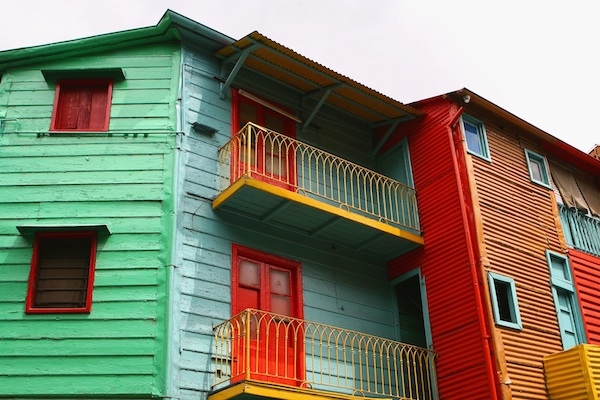The 1996 Spectator/ Shiva Naipaul Memorial Prize was won by Miranda France. Here, she shares her experience of winning the award and visiting the Spectator office and then-editor Frank Johnson to get her £3,000 cheque.
Miranda France has since had four books published. Her Shiva Naipaul-winning entry, ‘Bad Times in Buenos Aires’, can be read here. To find out more about the Shiva Naipaul award, and how you can enter, click here.
I clearly remember the day I won the Shiva Naipaul prize in 1996. My husband and I were renting a place off London’s south circular, a slightly grim maisonette where cushions were attached to the chairs with velcro. Often we got attached to the velcro too, and it could feel like a really big effort to get off the sofa.
I was feeling more generally stuck anyway, having just returned from two years living in Buenos Aires where I had tried, without much success, to be a foreign correspondent. I wasn’t very good at chasing stories, at least not within the brisk time-frame imposed by the foreign desk of a daily newspaper. To confront a suspected torturer, interview him and then turn in six hundred words about it for a 3pm deadline required stronger nerves than mine – and quite often my pieces were chased off the page anyway, by more important stories coming in from Bosnia. It was easier to while away the afternoon in the city’s Recoleta cemetery, chatting to Hugo, an erudite grave-digger, about Argentine history and Eva Perón, whose tomb he cared for.
Now that I was back in London I knew that I wanted to be a writer but I had done little to pursue that aim apart from entering the competition for that year’s Shiva Naipaul Memorial Prize. It’s good to go in for competitions with low-ish expectations, and I didn’t have high hopes for my portrait of Buenos Aires and the legacy of Argentina’s Dirty War. When my husband brought in an envelope with The Spectator’s masthead, I didn’t leap to my feet (I probably couldn’t). ‘It doesn’t mean I’ve won’, I reasoned. ‘It’ll be the usual apologetic stuff about the very high quality of this year’s entrants’. I’m very un-Obama when it comes to writing. ‘No We Can’t’ tends to be my attitude.
Opening the letter and finding that I had in fact won the prize and that I was being invited to the Spectator’s office to collect my cheque, is a moment to rank alongside the birth of my children and sometimes – sorry to say – a bit higher because it felt like an achievement that was uniquely mine, an endorsement of my way of seeing and describing the world and not just a reward for pushing hard – though pushing hard is definitely part of writing too.
At the Spectator’s offices in Doughty Street I was shown into the office of Frank Johnson, then the magazine’s editor. Anne McElvoy, the deputy editor, joined us. ‘I’m afraid most of the chairs are broken’, said Mr Johnson vaguely, but my memory is that I was given the best chair while the other two perched on ones that were missing a leg or part of the seat. Such insouciance about furniture struck me as amazingly high-minded and glamorous. More glamorous still was the magnum of champagne (seriously: a magnum!) that was brought in on a tray with three glasses. For about an hour we talked about writing. The magnum was never opened, mysteriously, but I didn’t mind too much as I went home in a taxi with a cheque for £3,000.
It’s not an exaggeration to say that winning the prize changed my life. The same week my essay was published, Weidenfeld and Nicholson wrote and asked if I would like to write a book, and Bad Times in Buenos Aires was published in 1998. A book about Spain followed and, after a break for child-rearing, a novel, That Summer At Hill Farm. These days all my work centres on writing and translating from Spanish. As I approach the deadline for my fourth book, I’m amazed to think that I now spend much of my time fulfilling the ambition of my teenage years. Being a writer is harder than I imagined it would be then; it’s undeniably lonely and the battle to maintain confidence is unremitting. It’s easy to come over all un-Obama – but you have to prise yourself off the mental sofa, resisting the velcro-snare of defeatism. And when things are going well, when the last page hoves into view, that ‘Yes we can!’ moment is particularly sweet.
The joy of the Shiva Naipaul prize is that its brief is so wide. Anyone who travels – even from one side of the country to the other – can arrive in a new place and see things with fresh eyes. Last night, for instance, I took a train from south London to Hampstead, half an hour away. Believe me, it was another world. . .
Miranda France has just joined Twitter. You can follow her at @MirandaFrance1.
Miranda’s latest book, That Summer At Hill Farm, is published by Vintage.
Past winners of the Shiva Naipaul Prize include Hilary Mantel, Miranda France, John Gimlette and Mary Wakefield. To read other winning entries, click here.








Comments